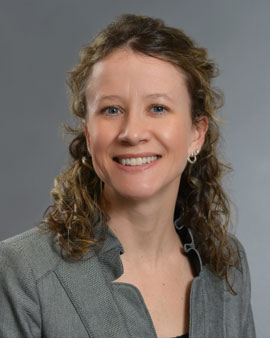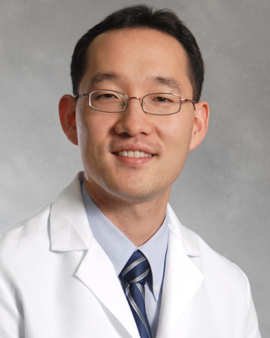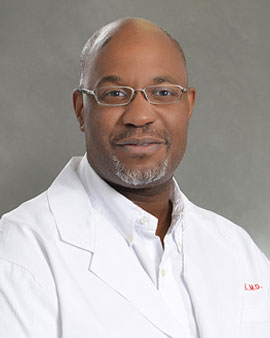HIV Treatment: Delivering Hope

It has been nearly four decades since HIV became a major threat to public health worldwide. Since then, researchers have developed highly effective treatments that are enabling people with HIV to live longer with a better quality of life.
In fact, studies have found that people who take antiretroviral therapy daily and achieve and maintain an undetectable viral load do not sexually transmit the virus to others. This concept (sometimes called "treatment as prevention") has led to a global campaign: Undetectable = Untransmittable, or U=U. It is based on an overwhelming body of clinical evidence, according to officials at the National Institutes of Health, and has been endorsed by 872 government agencies and NGOs from 98 countries around the world.
"U=U is important because it is a message of hope that is empowering to people living with HIV," explains Amy Althoff, MD, assistant professor of medicine, Division of Infectious Diseases & HIV Medicine, who provides specialized HIV care at Drexel's Partnership Comprehensive Care Practice in Philadelphia. "It means people living with HIV can have a sexual relationship without fear of transmission and be open to the possibility of conceiving children without alternative means of insemination. That makes a huge difference in their lives, dramatically reducing the shame and stigma they feel and encouraging them to start and stay on treatment."

Amy Althoff, MD
The Partnership, which celebrated 25 years last fall, follows about 1,600 patients living with HIV. The practice offers one-stop, multidisciplinary care that includes case managers, clinical research services, nutritional counseling, a behavioral health specialist, an on-site lab and assistance with pharmacy issues. Last year, the practice achieved viral suppression in 85 percent of its patient population; their next goal is 90 percent.
The Partnership also treats many patients who are co-infected with HIV and hepatitis C. "Screening for hepatitis C has become a standard of care for HIV-infected patients," says Dong Heun Lee, MD, interim chief of the Division of Infectious Diseases & HIV Medicine. "We've found about 14 percent of our patients test positive for hepatitis C antibodies, significantly higher than the 2 percent found in the general population."
Aggressive screening and treatment pay off: During the past two years, the clinic has treated hepatitis C virus successfully in 90 percent of its co-infected patients; about 10 percent are still to be treated. "Very soon we will have eradicated HCV in our clinic," Lee says.

Dong Heun Lee, MD
Candidates for Kidney Transplant
Another challenge faced by about one-third of people living with HIV is kidney disease. "HIV-infected patients are three times more likely to develop kidney failure than the general population," notes Lee.
Kidney transplantation for HIV-infected patients is an option. College of Medicine faculty providers have completed 120 transplants in which HIV-infected patients received an HIV-negative kidney, but the supply of organs from HIV-negative donors has been limited. However, transplantation of organs from HIV-positive donors to HIV-positive patients has been possible since 2015, when rules under the federal HIV Organ Policy Equity (HOPE) Act went into effect.
"With HIV-positive organs available for transplant, HIV-infected patients don't have to wait as long for kidney transplants, and they will have a greater chance of living longer," Lee says. "The outcome for an HIV-infected patient receiving an HIV-positive organ appears to be similar to the outcome with an HIV-negative organ. We need to reach out to HIV-infected patients who develop kidney failure, so they can be evaluated and put on the active transplant list while there is still time to help them. Patients often wait too long to come for evaluation, sometimes because their provider thought HIV was a contraindication for transplant."

Gregg Alleyne, MD
Innovative Perinatal Programs
The Partnership also specializes in care for pregnant women with HIV, handling about one-third of all births to HIV-infected mothers in Philadelphia last year, according to Gregg Alleyne, MD, an associate professor in the Department of Obstetrics & Gynecology and chief gynecologist at the practice.
Prevention of mother-to-child transmission of HIV has been a major public health success. With the institution of highly active antiretroviral therapy, physicians have been able to suppress viral loads and reduce transmission to 1 percent or less. In Philadelphia, outcomes have been even better, with zero mother-to-child transmissions in the past two years. "Drexel started one of the few programs in the country with a multidisciplinary approach to this patient population that includes perinatal case management, mental health, infectious disease and ob-gyn high-risk specialists all working with the patient simultaneously," says Alleyne. "We focus first on finding out what's happening in our patients' lives — what barriers they face in getting to their appointments and taking their meds. We help them address those issues. Our patient satisfaction score exceeds 90 percent."
Support Groups and Peer Mentors
To keep HIV-infected pregnant women engaged in care, the practice has been piloting a prenatal group program. During monthly facilitated sessions, HIV-infected mothers-tobe share experiences and develop a support system. The current aim is to help patients maintain undetectable viral loads for at least one year after delivery. "The program is working really well, and we look forward to recruiting more patients," Alleyne says.
The Partnership is also participating in a peer mentor program that pairs HIV-infected mothers with HIV-infected expectant mothers. Alleyne is the principal investigator at Drexel for the multisite NIH study. "We hope that the intervention of peer mentors teaching and supporting expectant moms will keep them engaged in care," he notes.
After HIV-positive mothers deliver, the Partnership's perinatal case manager remains available to them for a full year. She ensures that postpartum moms set up an appointment with their primary HIV care provider before they even leave the hospital. She also accompanies them to pediatric visits and helps them deal with other needs, such as housing and mental health issues.
Telemedicine Could Lower Barriers to Care

Zsofia Szep, MD
Some people infected with HIV feel a stigma about going to the doctor; others find a number of barriers to care. Telemedicine could be a solution. Led by Zsofia Szep, MD, MSCE, medical director of the Partnership and an associate professor of medicine in the Division of Infectious Diseases & HIV Medicine, a telemedicine initiative in the Partnership will also serve as a pilot program for all of Drexel Medicine.
"Our patient population has a hard time keeping appointments," Szep says. "Some may not come in because they're not dealing well with their HIV diagnosis. Others work or live far away. Also, because of the effectiveness of antiretroviral drugs, our patients are aging. We have some in their 70s and 80s who have trouble coming to appointments for logistical reasons. Some of our patients are bed-bound. Some need to be seen more frequently because of difficulties with medication. For all of these reasons, I thought telemedicine might be a reasonable intervention."
For a telemedicine visit, the health care provider uses a laptop computer with a camera and HIPAA-compliant Zoom software. The patient participates by accessing Drexel's Zoom website on a computer or by downloading free Zoom software to their smartphone. When lab work is needed, patients can go to a nearby lab and have the test results sent to their Partnership provider. During the three-month pilot, Szep hopes to increase engagement in care for Partnership patients.
"Our multidisciplinary clinic is uniquely suited to pilot telemedicine for Drexel," notes Szep. "All of our providers and staff can reach out to patients as needed. I hope this will translate into use in other Drexel practices as well and become part of routine care."
Back to Top